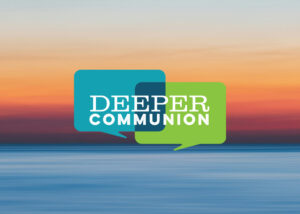I recently had a conversation with an atheist that did not fit the narrow conception I had of how that should have gone. It was a helpful and constructive experience. In any event the encounter spurred me to do a little snooping around on the internet for local atheist blogs and see what was happening around Winnipeg. In the process I ran into The Winnipeg Skeptics. One of the contributors has his own blog Startled Disbelief. I started reading various posts and before long I chimed in with a few comments. Now I have to say I appreciate Gem Newman’s tone at Startled Disbelief and so was quite open to hearing his positions. After my initial comment Gem directed me to an earlier post which outlined in broader terms his position as a skeptic. We had a decent little exchange going before I realized that the arc of the conversation was quickly moving into territory I simply had no interest in pursuing.
If you are interested in the full conversation see the last link (I did quite appreciate his overall presentation). In any event there was one aspect to the conversation that continued to trouble me. Gem constantly pushed the notion that skepticism was somehow non-political. Skepticism is simply a method of critically examining claims (as he puts it). I didn’t think anyone believed in a neutral mode of scientific inquiry anymore. Gem went on to say that skepticism does not “provide a personal moral framework” and also that “atheism says nothing about politics, economics, or even belief in the supernatural.” He claimed I was confusing the politics of particular atheists with the politics of atheism (I had earlier proposed that atheism was actually a much more robust approach than skepticism . . . for him atheism is a one-off subject). Gem claims that he is “a skeptical, liberal, humanistic atheist.” I suppose it is this combination that clarifies his politics. However, he continues to maintain a broader skeptical orientation in saying, “I think that everything should be open to question. All conclusions are provisional.” How is this not political? How will that not continue to deny participation to decisive and potentially life-threatening postures that need to be taken in response to abusive powers?
Now so far as theology goes I would agree that a skeptical atheism comes much closer to biblical faith than many other contemporary theologies do in its rigor and zeal for idol-smashing. However, biblical faith is a decidedly declared position. That is, biblical faith will always ultimately undermine earthly authorities which abuse power. This is Christology (as well as good Old Testament theology). So I put it to Gem saying that I am much more interested in the proposition ‘love everything’ as opposed to his tagline ‘question everything’. Love maintains a critical posture (because of its love for others) but always orientates the person towards a constructive and engaged posture. This is where things started coming off the rails in my mind. Here Gem began ‘applying’ his method. His defense of and basis for skepticism was simply the apparently self-evident role of the Enlightenment as “proven to have held up.” This is exactly my criticism he does not address. The Enlightenment does not hold up because it offered nothing socially or politically substantive to engage the West. I am then accused of a ‘false dichotomy’ in my opposition of love-or-question everything. Though, I should add that love under Gem’s definition is seems to be some sort of fond and fuzzy cuddling. When I advanced my view of love (as something restorative) I was accused of having a definition that “seems vague, misleading, needlessly complex, and in some cases probably guilty of equivocation.” Oh man, I guess Gem has the definition down for love.
It is at this point at the end of the conversation that Gem offers the strange example of giving lectures to teachers on how to teach mathematics. In this example it would not interest him to consider how to integrate the possibility that some children are unable to learn due to unstable life circumstances. That sort of clinched it. I suspect he would say that indeed we would care about it but he also says that he has “neither the skills nor the inclination to be a counsellor, and the fact that some of them may need counselling does not make teaching mathematics any less important.” I’m not sure who would argue from that example that mathematics is not important? Yes, fine we are all able and limited in various capacities but to consider one aspect of education as ‘pedagogically pure’ regardless of circumstance seems unhelpful.
Why am I recounting this? I guess I wanted to process it for myself. Christian and skeptical/atheistic apologetics are pretty big these days. I thought it might be a good exercise to understand why I don’t care. What this has clarified for me is the reality that by and large these expressions (on both sides of the fences, as I have encountered them) have a drastically insufficient or at least dis-integrated view of politics as though they can go about their business because they are a-political. Its not my responsibility for what others do with the sacred truth I discover. In any event this project seems like an even larger pile of crap than before.





